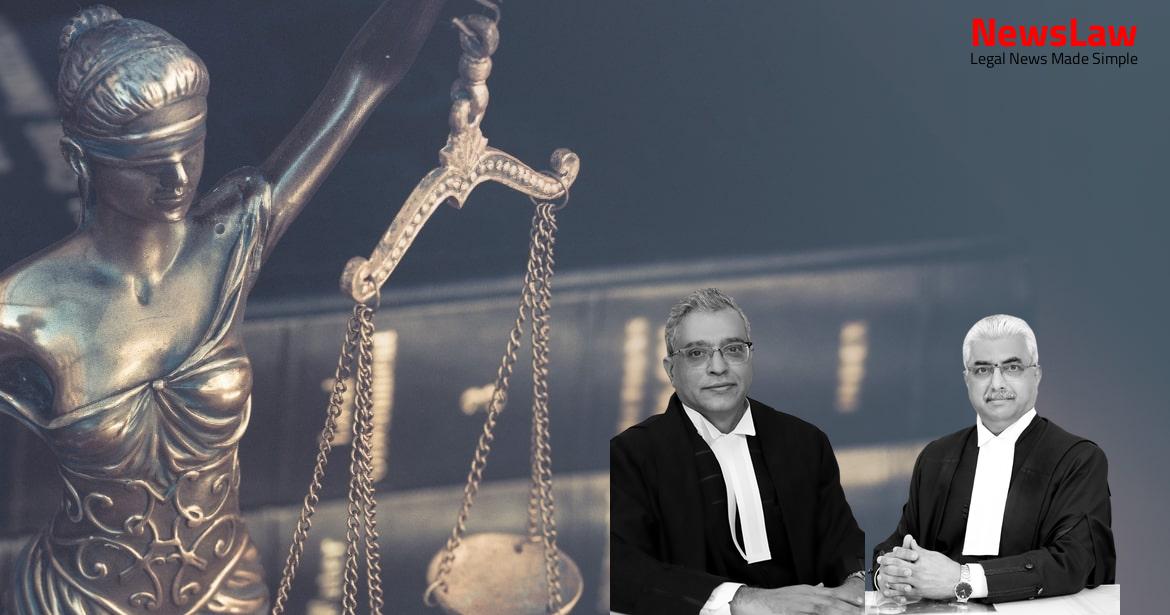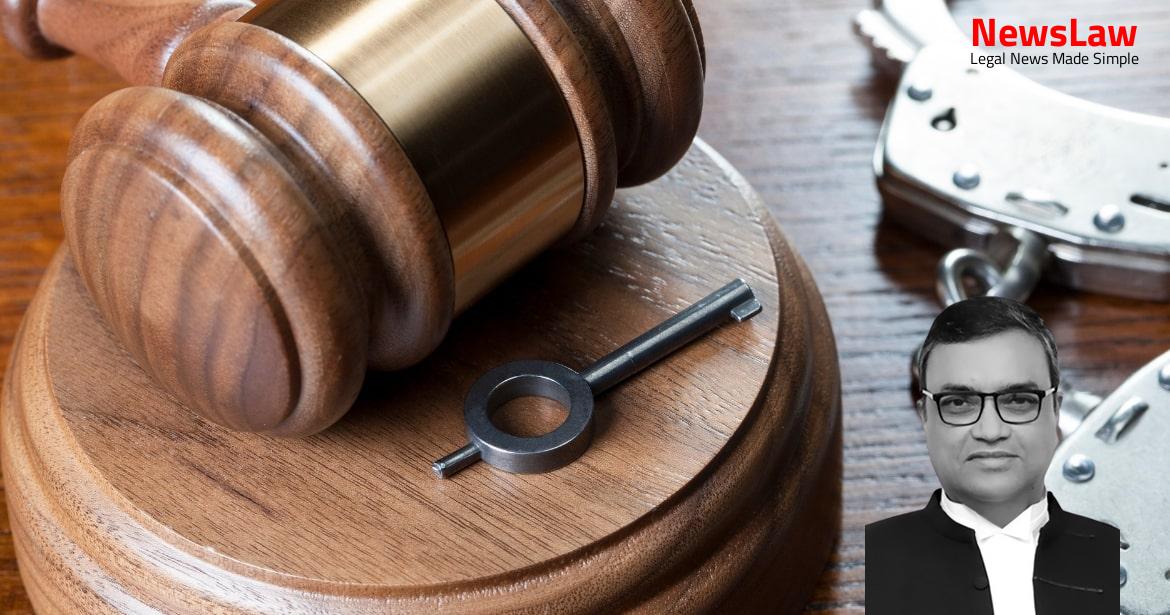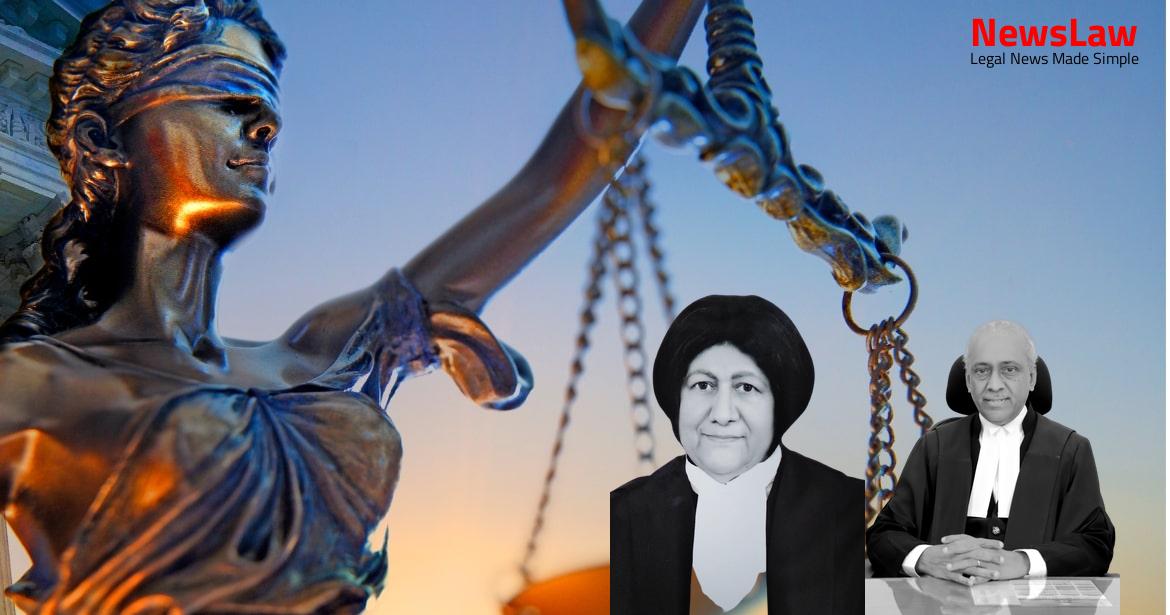This blog delves into a recent Supreme Court judgment regarding summoning orders in criminal cases, focusing on Criminal Appeal No. 2367 of 2024 and Criminal Appeal No. 2368 of 2024. The case involves Shankar and Vishal Singh as appellants, and the State of Uttar Pradesh & Others as respondents. The blog provides an insightful analysis of the legal principles applied by the Court, particularly concerning the exercise of discretion under Section 319 of the Criminal Procedure Code (Cr.P.C.). It discusses the importance of robust evidence and a stringent threshold for summoning additional accused, as established by legal precedent. Through a detailed examination of the facts and legal reasoning presented in the judgment, the blog aims to shed light on the complexities of criminal proceedings and the judiciary’s role in ensuring fairness and justice.
Facts
- PW-1 mentioned a longstanding enmity with accused Bacha Singh spanning 11 years
- Initial FIR included names of Shankar and Vishal based on suspicion
- PW-1 accused Accused Nos. 1-3 and Mahendra Singh of killing the deceased
- IO’s chargesheet did not name the present appellants as accused
- Other witnesses did not implicate the present appellants in the crime
- PW-1 later admitted to incorrectly naming the appellants in her FIR
- Assistant Public Prosecutor filed Section 319 Cr.P.C. application to summon the appellants for trial
- High Court refused to quash the summoning order to face trial under Section 302 IPC
- Allegations of murder based on old enmity between the two families
- The Ld. Trial Court allowed the application filed by the APP after considering previous decisions of the Court.
- If evidence during trial implicates a person not named as accused, they can be summoned to face trial.
- The Trial Court’s order was challenged by the Appellants through a petition under Section 482 Cr.P.C.
- High Court dismissed the petition on 04.04.2023.
- High Court observed that at the Section 482 stage, the focus is on prima facie case.
Also Read: University Autonomy vs. Reservation Rules: Case of Original Name vs. Appellant
Issue
- The issue to be considered is whether there is enough material against the Appellant for the Trial Court to issue a summoning order under Section 319 Cr.P.C.
- The focus is on determining if the Trial Court had sufficient evidence to implicate the Appellant in the case.
- The central question is whether the material presented justifies the summoning order under Section 319 Cr.P.C.
Also Read: State of Rajasthan vs. Appellant: Stamp Duty on Insurance Policies
Arguments
- The Respondent State argued that there is no bar in summoning the appellants and starting the trial afresh.
- The position of law is well-settled and the appellant’s counsel did not dispute this.
- Even if the trial has abated against existing accused, the trial can still be started afresh with the appellants.
Also Read: State of M.P. v. Pernod Ricard India Ltd. : Legal Interpretation of Substituted Rules
Analysis
- Only when the evidence is strong and reliable, can the power under Section 319 be exercised.
- The deposition of PW-1, the mother of the deceased, is not sufficient to invoke the power under Section 319 as she is not an eyewitness.
- PW-1 initially named the appellants in the FIR due to old enmity, but later clarified that it was based on suspicion and false information.
- None of the other witnesses corroborated the involvement of the appellants.
- The charge sheet did not mention the appellants as accused, further weakening the case against them.
- In the Section 161 statement, PW-1 explicitly stated that the appellants were not involved in the murder of her son.
- The evidence against the appellants lacked documentary support and was based on suspicion rather than concrete proof.
- The application under Section 319 to summon the appellants came a year after PW-1’s deposition, indicating a potential lack of urgency or necessity.
- Section 319 of the Cr.P.C. allows the court to proceed against a person who appears to be guilty of an offense during the inquiry or trial, even if they are not the accused.
- The case of Hardeep Singh v. State of Punjab in 2014 provided principles for criminal courts to follow when using the power under Section 319 Cr.P.C.
- The case Pyare Lal Bhargava v. State of Rajasthan in 1963 addressed the interpretation of the word ‘appear’ in the context of Section 319.
- For the court to fulfill the condition of appearing that a person committed an offense, exceptional circumstances must exist to allow the exercise of extraordinary jurisdiction.
- The court must be satisfied that the evidence presented by the prosecution, if unchallenged, could lead to the conviction of the accused individuals being added to the case.
- When taking cognizance, the court needs to determine if a prima facie case is established to proceed against the accused.
- Section 319 of the CrPC requires a stricter degree of satisfaction compared to the prima facie test.
- The power under Section 319 CrPC is discretionary and should be used sparingly and only when the circumstances justify it.
- The power should not be invoked based on mere suspicion that another person might be guilty, but only when strong and cogent evidence is present.
- The exercise of such power should not be casual or cavalier, but based on concrete evidence before the court.
- Higher degree of satisfaction needed for exercising power under Section 319 Cr.P.C. is not met in this case.
- No role attributed to the appellants in the present case.
- Trial Court made a serious error in allowing the application under Section 319 and issuing summons to the appellants.
- High Court should have used its jurisdiction under Section 482 and quashed the order.
- Deposition of PW-1 is in line and consistent with her statement under Section 161.
Decision
- The High Court failed to quash the order of summons dated 24.08.2017.
- The appeals are allowed, setting aside the order passed by the Trial Court dated 24.08.2017 and the judgment of the High Court dated 04.04.2023.
- The impugned orders passed by the High Court of Judicature at Allahabad and the Additional District and Sessions Judge are set aside.
Case Title: SHANKAR Vs. THE STATE OF UTTAR PRADESH (2024 INSC 366)
Case Number: Crl.A. No.-002367-002367 – 2024



